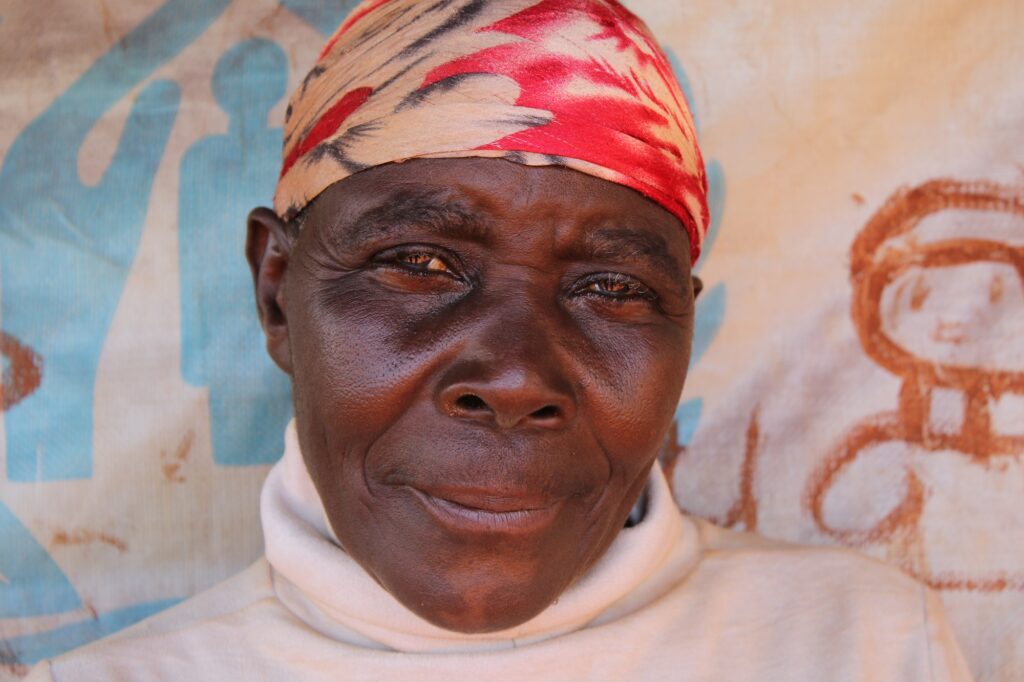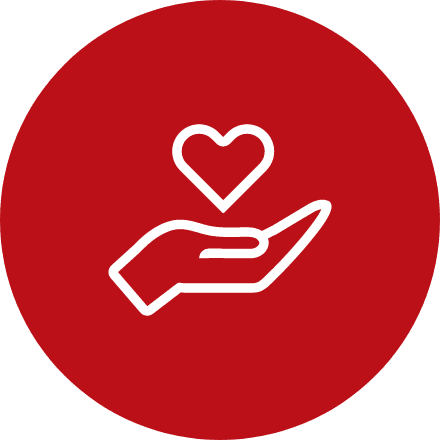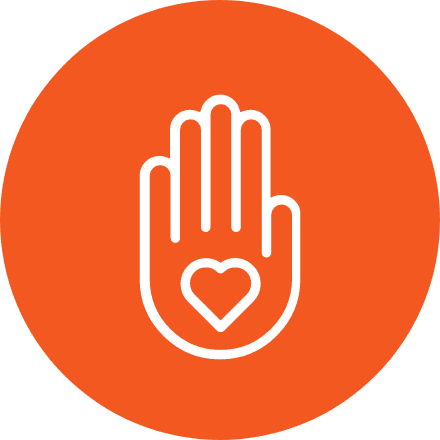Advancing the rights of older women.
Women are more likely to serve as caregivers throughout their lives and into old age, making them more susceptible to poverty in later life. They’re also more vulnerable to violence, abuse, and neglect at older ages due to gender-based discrimination. To prevent and overcome this, we foster leadership among older women.
We strive to ensure that older people of all genders enjoy equal rights, responsibilities, and opportunities. We envision a world where individuals, in all their diversity, are treated fairly and without discrimination.
When people are embraced equally, they can reach their full potential, benefiting both themselves and society as a whole.
At HelpAge, we are committed to eliminating all forms of gender inequality. Our approach promotes diversity, inclusivity, and respect for human rights, enabling all older people to lead fulfilling and dignified lives.
Further Reading
- New Report Highlights Gaps in Financial Education for Older Women
- Older Women Gain Visibility With USAID’s Revised Gender Equality and Women’s Empowerment Policy
- Raising the Voices of Older Women at CSW67: New Resources on Gendered Ageism
- Achieving gender transformative Universal Health Coverage fit for an aging world (Brief)
2023 Brief on Gendered Ageism
Empowering older women against gender-based violence
Combatting witchcraft accusations in Tanzania
In Tanzania and other countries, witchcraft beliefs have led to an alarming number of witchcraft accusations. Anyone can make them, and they can be based on almost anything — like “bewitching” to cause illnesses. Allegations also come from family members who want control of a widow’s property.
The accused are usually vulnerable older women, and after being labeled as witches they are often brutally attacked or murdered. It’s a complex issue that involves deep-rooted cultural beliefs, the low status of women, poverty, and other factors.
Because of our interventions, there has been a 99% reduction in killings in regions where HelpAge and our partners have intervened.
Breaking the silence on violence in Moldova
One in three older people in Moldova has experienced violence, and two-thirds of them are women. HelpAge works to ensure that the country’s older women at risk of violence can access support services.
We advocate for the government to invest in prevention and response mechanisms that operate effectively and strengthen the knowledge, skills, and capacity of civil society organizations on gender and age discrimination. We also raise women’s awareness about their rights and provide support to older domestic violence victims. And, we coordinate campaigning against violence and abuse at local, national, and international levels.

"If I stayed they would kill me."
–Bernice, Tanzania
Fleeing violence and political turmoil in Burundi, Bernice settled into Tanzania’s Mtendeli refugee camp. Soon after arriving she was accused of being a witch by the woman she was sharing a tent with — who wanted to coerce her into leaving so her boyfriend could move in. She told us: “I refused so they started spreading rumors that I am a witch, and that they don’t want me in the village and that if I stayed they would kill me. They came into my tent and beat me at about midnight.”
HelpAge’s team in the camps helped Bernice move to a different zone in the camp away from her accusers, and worked with the local communities to try to dispel myths about witchcraft.
From mentoring younger girls about their reproductive rights in Uganda to fighting against harmful practices such as witchcraft accusations in Kenya, watch how older women are working with HelpAge to make a difference in their communities.
What is HelpAge doing to advance gender equality?
- Technical assistance: We support non-governmental organizations (NGOs), UN agencies, and governments to integrate a gender and aging perspective into policies, programs, and organizational structures and operations. This ensures that both older women and men can influence, participate in, and benefit from development and humanitarian interventions and creates environments that truly promote gender equality. This is called gender mainstreaming, and we do this by providing training, capacity building, and strategic advice.
- Policy analysis and research: We review policy and gather data, evidence and knowledge that specifically focuses on the interplay between gender and aging. By doing so, we aim to identify policy gaps, address the inadequate comprehension of intersecting inequalities in older age, and shed light on the perspectives and lived experiences of older women and men. This informs advocacy efforts and policy recommendations, as well as gender mainstreaming in our own programs.
- Advocacy and policy influencing: We advocate for equal recognition of the rights of older people in both gender and aging forums, collaborating with other organizations and stakeholders to strengthen our coordinated advocacy efforts. Our approach is intersectional, promoting the integration of an aging lens in gender-focused organization and a gender lens in aging-focused organizations. Additionally, we empower older people and their organizations through training and support to advocate for their own rights and influence policy decisions. Through campaigns, events, and media engagement, we raise awareness about the rights of older people.
Why is gender equality important at HelpAge?
Gender equality is pivotal for achieving HelpAge’s mission, as it permeates all aspects of our work and plays a central role in fostering social justice, protecting human rights, and supporting sustainable development.
Challenging the assumption that older people are genderless or asexual is vital to addressing ageism. Gendered processes continue to shape the lives of people in older age, intensifying disadvantages faced by women and potentially disempowering men.
Challenges
Gender-based discrimination can accumulate throughout a person’s lifetime and become more pronounced in old age due to a variety of factors. Older women often face double discrimination based on both their age and their gender, while older men can experience challenges to their masculinity that can lead to feelings of isolation.
Gender inequality significantly impacts health outcomes, particularly for older women who often lack access to health and care services and are likely to spend a greater proportion of their lives in ill health or disability.
Gender-based violence is a pervasive issue that can occur at any stage of life, with long-lasting effects. For women, the cumulative impact of gender-based violence can hinder their ability to accumulate assets, harm their physical and mental health, and diminish their agency and voice. Similarly, individuals who are vulnerable to gender-based violence due to their sexual orientation or gender identity may also face similar consequences.
Financial Literacy and Older Women in the U.S.
With funding from the Robert Wood Johnson Foundation, the University of Southern California (USC) Center for Economic and Social Research, the Tsao Foundation, and HelpAge USA conducted research on the implementation of a successful financial literacy program across Asia and the need and opportunity for financial education for older women in the U.S.



